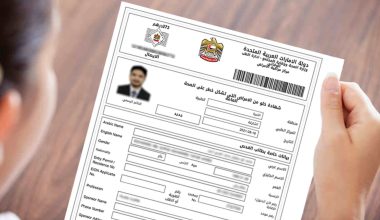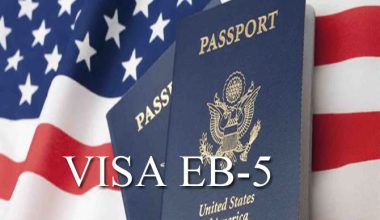The United States offers immense opportunities for individuals seeking to build a stable and rewarding career in the healthcare sector. Among these roles, nursing assistant jobs have become increasingly popular, especially for foreigners looking to work and reside in the U.S. With a high demand for healthcare workers across the country, many employers are offering visa sponsorship programs to qualified international candidates, including Nigerians.
Nursing assistant roles are not only an entry point into the U.S. healthcare system but also provide a stable income, job security, and pathways to advance in the medical field. Whether you are an experienced caregiver or someone looking to start a career in healthcare, this guide will provide you with everything you need to know about securing a nursing assistant job in the U.S. with visa sponsorship. From understanding the job requirements and visa processes to tips for finding the right employer, this guide will help you navigate the journey toward your American dream.
Understanding the Role of a Nursing Assistant
Nursing assistants, also referred to as Certified Nursing Assistants (CNAs) in the U.S., play a vital role in the healthcare system. They work under the supervision of registered nurses (RNs) or licensed practical nurses (LPNs) to provide basic care and assistance to patients in hospitals, nursing homes, long-term care facilities, and even private homes.
Duties and Responsibilities
The day-to-day responsibilities of nursing assistants revolve around ensuring patients’ comfort, safety, and well-being. These duties include:
- Assisting patients with daily activities such as bathing, dressing, and feeding.
- Monitoring and recording vital signs like blood pressure and temperature.
- Helping patients move or transfer from beds to wheelchairs.
- Ensuring patient hygiene and maintaining clean environments.
- Reporting changes in patients’ conditions to nurses or doctors.
Skills and Qualifications
To excel as a nursing assistant, certain skills and qualifications are essential:
- Compassion and Empathy: A caring attitude and patience are crucial when working with patients who may be elderly, disabled, or in recovery.
- Basic Medical Knowledge: Understanding basic healthcare practices and terminology.
- Physical Stamina: Nursing assistant jobs can be physically demanding, often requiring you to stand or lift patients for long periods.
- Certification: While some employers offer training programs, most U.S. states require CNAs to obtain certification through accredited training courses.
Benefits of Working as a Nursing Assistant in the U.S.
Becoming a nursing assistant in the U.S. offers several advantages:
- Job Stability: With an aging population and a growing need for caregivers, nursing assistants are in high demand across the country.
- Visa Sponsorship Opportunities: Many U.S. healthcare employers are open to sponsoring visas for international candidates due to the shortage of workers.
- Career Advancement: A nursing assistant role can be the first step toward higher positions in healthcare, such as becoming a Licensed Practical Nurse (LPN) or Registered Nurse (RN).
Why Nursing Assistant Jobs are in High Demand in the U.S.
The demand for nursing assistants in the U.S. has surged in recent years due to several factors, creating opportunities for foreign applicants seeking visa sponsorship.
#1. Aging Population
One of the primary drivers of demand is the aging population in the U.S. As the baby boomer generation continues to grow older, the need for long-term care facilities and home healthcare services has increased dramatically. Nursing assistants are essential in providing the care and support required for elderly patients to maintain their quality of life.
#2. Shortage of Healthcare Workers
The U.S. is currently experiencing a healthcare workforce shortage. Many Americans are entering retirement, including healthcare workers themselves, leaving gaps in the workforce. This shortage has prompted healthcare employers to look internationally for qualified candidates to fill critical roles, including nursing assistant positions.
#3. Visa Sponsorship as a Solution
With limited local applicants available to meet the growing demand, U.S. employers have turned to visa sponsorship as a viable solution. By sponsoring work visas, they can recruit skilled and willing candidates from countries like Nigeria and beyond. This not only helps fill critical gaps but also allows international workers to access opportunities they may not have in their home countries.
#4. Pathways to Career Growth
The role of a nursing assistant is not just a job—it’s a career pathway. Many nursing assistants use this role as a stepping stone to advance in the healthcare field. Employers recognize this and are willing to invest in employees through training, certification support, and visa sponsorship programs to ensure long-term growth and retention.
Resources of Visa Sponsorship for Nursing Assistant Jobs
Here are some resources to assist you in your job search:
- Indeed: A leading job search platform that lists various nursing assistant positions across the U.S. You can filter searches to find employers offering visa sponsorship. Indeed
- Glassdoor: Provides job listings along with company reviews, which can be helpful in assessing potential employers. Search for certified nursing assistant positions with visa sponsorship. Glassdoor
- Careerjet: An employment search engine that aggregates job listings from various sources. You can search for nursing assistant sponsorship jobs in the USA. CareerJet
- JobCareers.org: Offers insights into healthcare assistant jobs in the USA with visa sponsorship, including nursing assistant roles. Job Careers
When applying, ensure your resume and credentials are up-to-date and tailored to meet U.S. standards. Highlight any relevant experience and certifications, and be prepared to provide evidence of your qualifications. Networking with professionals in the U.S. healthcare industry and joining relevant online forums can also enhance your job search efforts.
Remember, the application process can be competitive, so it’s essential to apply to multiple positions and remain persistent. Good luck with your job search!
Visa Sponsorship for Nursing Assistant Jobs
Securing a nursing assistant job in the United States often requires visa sponsorship for foreigners. This sponsorship is a pathway for international candidates to live and work legally in the U.S., providing an opportunity to contribute to the healthcare sector while enjoying the benefits of U.S. residency. For Nigerian applicants and other international candidates, understanding how visa sponsorship works is critical to navigating this process effectively.
What is Visa Sponsorship?
Visa sponsorship occurs when a U.S.-based employer agrees to take legal responsibility for hiring a foreign worker. This involves filing the necessary petitions and paying associated fees to the U.S. government to secure a work visa for the employee. For nursing assistants, visa sponsorship typically covers the costs of applying for and maintaining the visa, as well as providing documentation that confirms the foreign worker meets the qualifications for the job.
Common Visa Types for Nursing Assistants
Several visa options are available for nursing assistants, depending on the nature of the employment and the duration of the role.
#1. H-2B Visa (Temporary Non-Agricultural Workers):
The H-2B visa is one of the most commonly used visa types for nursing assistants. It is designed for temporary, non-agricultural jobs and allows U.S. employers to hire foreign workers for roles that cannot be filled domestically.
- Eligibility: To qualify, you must have a job offer from a U.S. employer approved by the Department of Labor (DOL).
- Duration: Typically valid for up to one year, with options for extensions up to a maximum of three years.
- Limitations: This visa is temporary, so it does not offer a direct pathway to permanent residency.
#2. EB-3 Visa (Employment-Based Permanent Residency):
The EB-3 visa is a permanent residency option available to skilled workers, professionals, and unskilled workers. Nursing assistants often fall under the “unskilled worker” category.
- Eligibility: Requires a job offer from a U.S. employer willing to sponsor your green card application.
- Benefits: Unlike the H-2B visa, the EB-3 visa provides a pathway to a green card and eventual U.S. citizenship.
- Duration: Offers permanent residency, so there is no expiration as long as you maintain your green card status.
#3. TN Visa (For Canadian and Mexican Citizens):
While not applicable to Nigerian applicants, it is worth noting that the TN visa is available for nursing assistants from Canada and Mexico under the North American Free Trade Agreement (NAFTA).
Requirements for Visa Sponsorship
Visa sponsorship for nursing assistant jobs involves several requirements for both the employer and the foreign worker:
- Job Offer from a U.S. Employer:
The first step in securing visa sponsorship is obtaining a valid job offer. The employer must demonstrate that they are unable to fill the position with domestic workers and are therefore turning to foreign talent. - Nursing Assistant Certification:
Many states in the U.S. require nursing assistants to hold a Certified Nursing Assistant (CNA) certification. International candidates may need to complete training and certification upon arrival in the U.S. to meet state-specific requirements. - Language Proficiency:
English language proficiency is critical for effective communication in healthcare settings. Most visa programs require proof of language skills, often through standardized tests like TOEFL or IELTS. - Background Checks and Health Requirements:
Candidates must pass background checks and meet health requirements, including immunization records and medical exams, to qualify for employment and visa approval.
Employer Responsibilities in Visa Sponsorship
U.S. employers sponsoring a foreign nursing assistant must meet specific legal obligations:
- File a petition with the U.S. Citizenship and Immigration Services (USCIS).
- Obtain a labor certification from the Department of Labor (DOL), proving the position cannot be filled domestically.
- Pay the associated visa fees and support the employee through the visa application process.
Costs of Visa Sponsorship
While most visa sponsorship costs are borne by the employer, candidates should be aware of additional expenses they may need to cover, including:
- Certification fees (if training is required in the U.S.).
- English language tests (approximately $200–$300).
- Travel expenses to the U.S. for job placement.
How Visa Sponsorship Benefits International Candidates
Visa sponsorship provides a unique opportunity for foreigners to work in the U.S. legally and enjoy the benefits of living in one of the world’s most advanced healthcare systems. Key advantages include:
- Access to U.S. Healthcare Employment: Sponsorship opens doors to stable, high-demand jobs that might otherwise be inaccessible.
- Support from Employers: Many sponsoring employers assist with relocation, training, and certification costs, reducing the burden on candidates.
- Pathways to Permanent Residency: For those on EB-3 visas, sponsorship can lead to permanent residency and even U.S. citizenship over time.
Visa sponsorship is a critical component of the nursing assistant job application process for international candidates. By understanding the types of visas available, meeting the requirements, and working with reliable employers, you can significantly increase your chances of securing a role in the U.S. healthcare sector.
6 Steps to Secure a Nursing Assistant Job with Visa Sponsorship
Securing a nursing assistant job in the United States with visa sponsorship requires a combination of preparation, networking, and understanding the requirements. Here’s a comprehensive step-by-step guide to help you navigate the process effectively:
Step 1: Understand the Certification Requirements
To work as a nursing assistant in the U.S., you may need to obtain a Certified Nursing Assistant (CNA) certification. Most states require CNAs to complete a state-approved training program and pass a competency exam. As a foreign applicant, you can pursue certification after arriving in the U.S., but having prior caregiving experience or certifications in your home country can strengthen your application.
Key Steps for Certification:
- Enroll in a state-approved CNA training program. Training typically lasts 4–12 weeks and includes classroom instruction and hands-on clinical experience.
- Pass the state CNA certification exam, which tests your theoretical knowledge and practical caregiving skills.
- Register with the state nursing board to obtain your CNA license.
If you already have healthcare experience or a similar qualification in your home country, check if any of your credentials can be transferred or recognized in the U.S. Some states may waive portions of the training requirement if you meet specific criteria.
Step 2: Research Employers Offering Visa Sponsorship
Not all employers sponsor visas for international candidates, so it’s essential to target healthcare facilities and agencies that have a track record of hiring foreign workers. Employers in the U.S. often include nursing homes, long-term care facilities, hospitals, and home healthcare agencies.
Where to Look for Sponsored Jobs:
- Job Boards: Use platforms like Indeed, Glassdoor, and Monster to search for nursing assistant jobs with visa sponsorship. Add keywords like “visa sponsorship” or “foreign worker” to your search queries.
- Specialized Agencies: Recruitment agencies specializing in placing foreign healthcare workers, such as Avant Healthcare Professionals and MedPro International, can connect you with employers offering visa sponsorship.
- Networking: Join healthcare forums and LinkedIn groups focused on international nurses and caregivers. Networking can help you find leads and connect directly with hiring managers.
- Direct Applications: Reach out to large healthcare organizations like HCA Healthcare and Genesis HealthCare, which are known for employing international workers.
Step 3: Prepare a Strong Application
Once you’ve identified potential employers, the next step is to prepare a compelling application that highlights your skills, experience, and eligibility for the role. A strong application can significantly improve your chances of getting shortlisted.
Tips for Preparing Your Application:
- Resume: Use a professional format that clearly outlines your caregiving experience, certifications, and skills. Include details about any previous experience in healthcare, even if it was informal.
- Cover Letter: Personalize your cover letter to each employer. Highlight your motivation to work in the U.S., your caregiving skills, and your willingness to complete any required certifications upon arrival.
- References: Provide contact information for previous employers, supervisors, or trainers who can vouch for your caregiving abilities.
- English Language Proficiency Proof: If required, include your TOEFL or IELTS scores to demonstrate your ability to communicate effectively in English.
Step 4: Prepare for Interviews
After submitting your application, you may be invited for an interview. Employers often conduct interviews to assess your caregiving knowledge, communication skills, and suitability for the role.
Common Interview Questions:
- How do you handle difficult or uncooperative patients?
- Can you describe a time when you went above and beyond for a patient?
- How do you ensure patient safety and comfort?
- Why do you want to work as a nursing assistant in the U.S.?
Interview Tips:
- Research the organization beforehand to understand its values and priorities.
- Be honest about your experience and willingness to learn.
- Practice answering common caregiving-related questions confidently.
- Show enthusiasm for the opportunity to work in the U.S. and contribute to their team.
Step 5: Navigate the Visa Sponsorship Process
Once you receive a job offer from a U.S. employer willing to sponsor your visa, you will need to work closely with them to complete the visa application process.
Steps for Visa Sponsorship:
- Employer’s Role: The employer will file a petition with the U.S. Citizenship and Immigration Services (USCIS) and secure a labor certification from the Department of Labor, confirming that the job cannot be filled domestically.
- Your Role: Provide all necessary documentation, including your passport, proof of education or certification, and health records. Attend the visa interview at your local U.S. embassy or consulate.
The timeline for visa sponsorship can vary depending on the visa type and the employer’s efficiency. Employers offering H-2B visas typically complete the process within a few months, while EB-3 visas for permanent residency may take longer.
Step 6: Prepare for Relocation
Once your visa is approved, the final step is to prepare for your relocation to the U.S. This involves organizing your travel plans, accommodation, and other logistics to ensure a smooth transition.
Checklist for Relocation:
- Travel Arrangements: Book your flight to the U.S. and ensure you have all necessary travel documents, including your visa and job offer letter.
- Accommodation: Arrange temporary or permanent housing near your workplace. Some employers may provide accommodation or assistance in finding a place to stay.
- Health Insurance: Confirm your employer’s health insurance coverage or purchase your own policy if needed.
- Orientation: Familiarize yourself with U.S. workplace culture, healthcare practices, and laws to ease your transition.
Key Takeaways
- Nursing assistant jobs are in high demand in the U.S., with employers offering visa sponsorship to qualified foreign candidates.
- Certification and basic caregiving skills are essential for securing these roles.
- Understanding the visa application process and finding reliable sponsors are critical steps.
- Cultural adaptation and workplace readiness can help ensure long-term success.
FAQs
Do I need prior experience to work as a nursing assistant in the U.S.?
No, many entry-level roles are available, but having experience can strengthen your application.
What certifications are required to work as a nursing assistant in the U.S.?
Most states require Certified Nursing Assistant (CNA) certification, which can often be obtained in the U.S. after training.
What type of visa do I need for a nursing assistant job in the U.S.?
Common visas include the H-2B (temporary work visa) and EB-3 (employment-based green card).
Are employers willing to sponsor foreign nursing assistants?
Yes, many U.S. employers sponsor visas due to the high demand for healthcare workers.
Can I advance my career as a nursing assistant in the U.S.?
Absolutely. Nursing assistant roles can lead to further training and certifications, allowing you to progress to roles like Licensed Practical Nurse (LPN) or Registered Nurse (RN).






